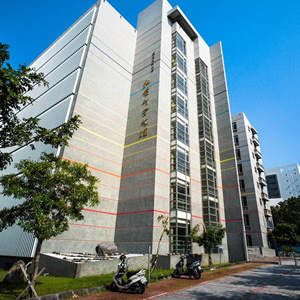
The National Cheng Kung University is the second largest and second oldest university in Taiwan, next only to National Taiwan University. Our university started as an engineering college in 1931. Although an independent College of Arts was established as early as 1969, social science as one of the three major realms of science was not even in the university curriculum until the 1980s. The College of Social Sciences was thus formally established in 1997 for the enhancement of the research and teaching in areas such as politics, economics, law, education, psychology etc.
In order to adapt itself to the increasingly liberal and democratic environment, the university established the Sun Yat-sen Center for Social Sciences Studies in August 1987, mainly through the personal efforts of Prof. Lee Shih-chung. The energetic promotion of social sciences teaching and research bore fruit in September 1993, when the Graduate Institute of Political Economy was established. Prof. Lee then became the Institute's first director.
In May 1996, the Ministry of Education approved the University's application for setting up the Graduate Institute of Education and the Graduate Institute of Legal Sciences, thereby shaping up the skeleton of a new College of Social Sciences. In 1997, the College of Social Sciences formally came into existence.
Given the support of the university's governing body, the college expanded in a fairly rapid manner. Departments of Political Science and Economics were established in 2001. Department of Law was founded in 2002. Graduate Institute of Law in Science and Technology followed two years later. Finally, the first Ph.D. program of the College under the Graduate Institute of Political Economy began to operate in August 2004.
The master programs of both the Graduate Institute of Economics and the Graduate Institute of Cognitive Science as well as the doctoral programs of both the Graduate Institute of Education and the Graduate Institute of Legal Sciences began to operate in 2006. In addition, the Department of Psychology started to operate in 2008. So far, the College has already had four departments and six institutes and intends to establish more professional graduate institutes such as the institute of Financial & Economic Law, institute of Health Care Economics, and institute of Sociology in the near future. The College intends to promote an integration of different disciplines, enhance international academic exchanges, organize international conferences, and recruit foreign students.
